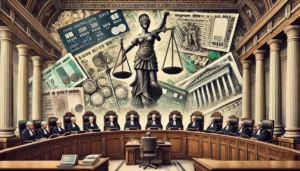Case Citation
- Court Name: Supreme Court of India
- Case Title: Sanjeevkumar Harakchand Kankariya v. Union of India & Ors.
- Case No.: Civil Appeal No. (arising out of SLP (C) No. 1904 of 2015)
- Date of Judgment: December 19, 2024
- Judges: Justice Sanjay Karol and Justice C.T. Ravikumar
Facts of the Case
The appellant, Sanjeevkumar Harakchand Kankariya, had entered into an agreement to sell a property located in Aurangabad. When the agreement could not be performed, he filed a Special Civil Suit for specific performance. The dispute was referred to mediation under Section 89 of the Code of Civil Procedure (CPC) and resolved amicably. While the court disposed of the suit based on the settlement, it allowed a refund of only 50% of the court fees. The appellant argued that under Section 16 of the Court Fees Act (CFA), 1870, a full refund of the court fees was warranted for disputes resolved through alternative dispute resolution (ADR). He challenged the Bombay High Court’s dismissal of his petition, which held that the CFA, 1870, was inapplicable in Maharashtra due to the Maharashtra Court Fees Act, 1959 (MCFA, 1959).
Contentions of the Appellant
- Entitlement to Refund: Section 16 of the CFA, 1870 mandates a full refund of court fees for disputes resolved through ADR mechanisms, irrespective of the litigation stage.
- Legislative Overreach: The MCFA, 1959 cannot override the CFA, 1870, a central legislation. The refund of court fees under ADR is governed by the central law, which has supremacy.
- Encouraging ADR: Denying a full refund undermines the legislative intent of Section 89 CPC, aimed at promoting dispute resolution through ADR.
- Harmonious Interpretation: All relevant statutes, including the CPC, CFA, and MCFA, should be interpreted in harmony to uphold the ADR framework.
Contentions of the Respondents
- Legislative Competence: The MCFA, 1959, enacted by the Maharashtra State Legislature, supersedes the CFA, 1870, as per Entry 3 of List II (State List) of the Seventh Schedule of the Constitution.
- Differentiated Refund: Section 43 of the MCFA, 1959 provides varying refund rates, depending on the nature of the dispute and settlement.
- Non-applicability of CFA, 1870: The CFA, 1870, no longer applies in Maharashtra, and its provisions on refund cannot override the state’s laws.
- Legal Precedents: Courts have recognized the power of state legislatures to regulate court fees as a state subject.
Issues on Judgment
- Whether the appellant is entitled to a full refund of court fees under the CFA, 1870, despite the applicability of the MCFA, 1959 in Maharashtra?
- Whether the Maharashtra State Legislature’s enactments can override the central legislation in the context of ADR settlements?
- Whether there is an inconsistency between the CFA, 1870, and the MCFA, 1959, affecting the refund of court fees?
- Whether ADR settlements resolved under Section 89 CPC should mandate uniform refund provisions across states?
Observations/Findings by the Supreme Court
- Legislative Domain: Court fees fall under Entry 3 of List II (State List), making it within the legislative competence of the state. The MCFA, 1959, validly repealed the CFA, 1870, in Maharashtra.
- ADR Mechanisms: The Court differentiated between mediation under Section 89 CPC and Lok Adalats under the Legal Services Authorities Act, 1987. Refund provisions for Lok Adalats cannot be equated with mediation.
- State-Specific Refund Rules: The notification under the MCFA, 1959, was consistent with the state law, and there was no repugnancy with the central law.
- Subsequent Amendments: The Court noted that Maharashtra had amended the MCFA, 1959, in 2018 to allow a full refund of court fees for ADR settlements, aligning with the CFA, 1870.
Principles Laid Down by the Court
- Court fees are a state subject, and states have the legislative authority to regulate and prescribe refund provisions.
- Mediation and Lok Adalats, though part of ADR, operate under distinct frameworks, and their refund provisions need not be uniform.
- The doctrine of harmonious construction and the principle of legislative competence govern the interpretation of overlapping central and state laws.
- Amendments to state laws to align with central legislation reflect legislative intent but do not retrospectively invalidate prior provisions.
Final Order
The Supreme Court dismissed the appeal, holding that the appellant was not entitled to a full refund of court fees under the CFA, 1870. However, invoking Article 142 of the Constitution, the Court directed the refund of the court fees in this case as an exceptional measure, given the amicable settlement and the modest financial stakes involved.
Importance of the Judgment to Society
This judgment underscores the federal structure of legislative powers in India, affirming states’ autonomy in regulating court fees. By clarifying the scope of ADR mechanisms and refund provisions, it promotes legislative harmony and strengthens the institutional framework for dispute resolution. Additionally, the Court’s suggestion for uniform refund rules encourages states to align their laws with central policies, thereby fostering greater public confidence in ADR processes.








